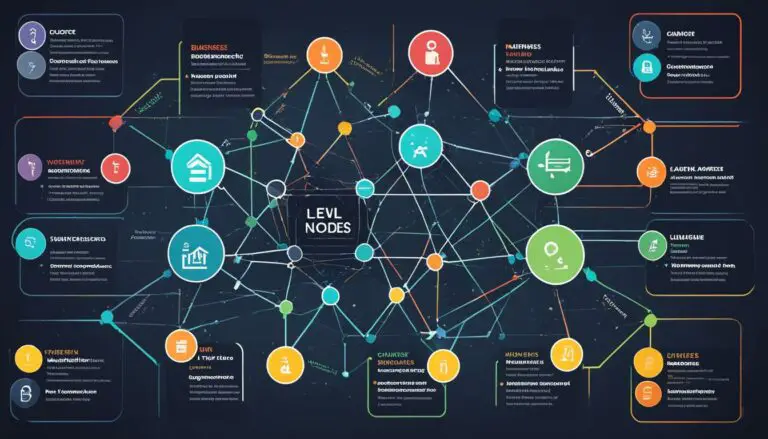A Level vs GCSE: Understanding the Key Differences
GCSE and A-Level are two distinct educational qualifications in England, Wales, and Northern Ireland. GCSEs, or General Certificate of Secondary Education, are for students aged 14-16. A-Levels, meaning Advanced Level, are for older students aged 16-18.
GCSEs give students a well-rounded English, math, science, and more education. Most students take 8 to 10 of these exams. They are scored from 1 to 9, with 9 being the best score.
A-Levels are more specialized than GCSEs. They allow students to study a smaller number of subjects in greater depth and are designed to prepare students for university-level study. Students typically take three or four A-Levels and are graded on a scale of A*-E, with A* being the highest grade.
It is important to note that GCSEs are a prerequisite for A-Levels. This means that students must pass their GCSEs before progressing to A-Level study. Additionally, some A-level subjects may require specific GCSE subjects as a prerequisite.
In terms of the content covered, A-Levels are more challenging than GCSEs. They require students to think critically and independently, often involving more complex concepts and theories. However, they also allow students to specialize in exciting subjects.
Differences in Curriculum
A-levels are more specialized and in-depth than GCSEs. While GCSEs cover a broad range of subjects and topics, A-levels require students to choose a smaller number of subjects and study them in much greater detail.
This means that A-levels are more challenging than GCSEs but more rewarding for students interested in a particular subject.
In terms of specific subjects, A-levels are generally more advanced than GCSEs. For example, in math, A-levels cover topics such as calculus and statistics, which need to be covered in GCSEs. Similarly, A-levels require students to analyze literature in much greater depth than GCSEs in English.
Languages are another area where A-levels are more advanced than GCSEs. A-level language courses require students to develop a much greater understanding of grammar and vocabulary than GCSEs and express themselves fluently.
A-levels are more advanced in the sciences than GCSEs, emphasizing practical work and experimentation. A-level physics, for example, covers topics such as quantum mechanics and relativity, which still need to be covered in GCSEs.
In simpler terms, A-levels in subjects like the social sciences and humanities ask students to think more deeply and form their own opinions. This differs from GCSEs, which emphasize knowing the facts, like in history.
🌟 Hey Students! 🚀 Ready for the ultimate experience? Join us on Studentsinside.com's Facebook, YouTube, WhatsApp, and LinkedIn. Click now for tips, fun, and success vibes! 🌈✨ #StudentLife #JoinUs
Business studies, sociology, psychology, and philosophy are other subjects covered in greater depth at A-level than at GCSE.
Grading System
GCSE exams are graded from 9 (highest) to 1 (lowest), while A-level exams are graded from A* (highest) to E (lowest).
In GCSEs, a grade of 4 is considered a “standard pass,” while a grade of 5 is regarded as a “strong pass.” Grades 6, 7, 8, and 9 are equivalent to B and A grades at A-level. At A-level, a grade A is equivalent to a grade 7, while a grade B is equivalent to a grade 6.
The grading system for A-levels and GCSEs is designed to reflect the difficulty of the exams. A-level exams are generally considered more difficult than GCSEs, so the grading system for A-levels is more stringent.
It is important to note that the grading system for A-levels and GCSEs has changed over the years. In the past, A-levels were graded from A to E, while GCSEs were graded from A* to G.
However, the grading system for both exams has been revised to reflect changes in the education system and to ensure that students are adequately prepared for further studies.
Examination Structure
The examination structure for A-levels and GCSEs is quite different. GCSEs are taken over two years, with exams taken at the end of the second year. On the other hand, A-levels are taken over two years, with exams taken at the end of each year.
GCSE exams are generally shorter than A-level exams, with most exams lasting around 1 hour and 45 minutes. In contrast, A-level exams are usually 2 hours long, with some lasting up to 3 hours.
GCSE exams are also more frequent, with students taking exams in multiple subjects over two weeks. A-level exams are taken longer, with students taking exams in each subject at the end of the first and second years of study.
GCSEs and A-levels are assessed through a combination of exams and coursework. GCSE exams usually account for around 75% of the final grade, with coursework comprising 25%. A-level exams typically account for 80% of the final grade, with coursework comprising 20%.
Marking for both GCSEs and A-levels is done by exam boards such as AQA and OCR. These exam boards are responsible for setting the exams, keeping the exams, and providing student results.
Study Requirements and Workload
When studying A-levels, students need to be prepared for a significant increase in workload compared to their GCSEs. The coursework is more demanding, and there is a greater emphasis on independent study. This can be a challenge for some students who may struggle with self-discipline.
A-levels typically require 15-20 hours of study per week per subject, with some subjects requiring more. This includes time spent in class, completing coursework, and doing independent study. In contrast, GCSEs generally require around 10 hours of study per week per subject.
One of the main differences between A-levels and GCSEs is the amount of independent study required. A-levels require students to take more responsibility for their learning and to be more self-disciplined. This means that students need to be able to manage their time effectively and work independently.
Another difference between A-levels and GCSEs is the amount of coursework required. A-levels typically have more coursework than GCSEs, which is generally more challenging. Students must manage their time effectively to complete their coursework on time and to a high standard.
Teaching Methods
The teaching methods used in A Levels and GCSEs are different. A-levels require students to take more initiative and be more independent in their learning.
Students are expected to go beyond basic reading and utilize the resources available without teachers or parents breathing down their necks. In contrast, GCSEs are more teacher-led, giving students more structure and guidance in their learning.
A Levels emphasize critical thinking and creativity. Students are urged to think differently and find unique solutions. Teachers use group activities, discussions, and projects to nurture these abilities.
In contrast, GCSEs focus more on rote learning and memorization. Teachers often use lectures and note-taking as the primary method of instruction. While there is some opportunity for creativity and critical thinking in GCSEs, it is less emphasized than in A Levels.
Entry Requirements for Further Studies
Regarding entry requirements for further studies, A-levels and GCSEs play an essential role. A-levels are Level 3 qualifications that are typically required for entry into universities in the UK. At the same time, GCSEs are Level 2 qualifications usually taken by students in their final year of secondary school.
For those looking to pursue a Bachelor’s degree, A-levels are often a requirement. Most universities require students to have at least two A-levels, while some may need three.
The specific A-level subjects required may vary depending on the degree program, but subjects such as Maths and English are commonly necessary for a wide range of degrees.
In addition to A-levels, some universities may require specific GCSEs as entry requirements. For example, a degree in Medicine may require a student to have a minimum grade in GCSE Biology, Chemistry, and Physics.
Other options are available for those not wishing to pursue a Bachelor’s degree. T-levels and Degree Apprenticeships are two such options, which provide students with vocational training and work experience. T-levels are Level 3 qualifications equivalent to three A-levels, while Degree Apprenticeships allow students to earn a degree while gaining work experience.
International students may also have different entry requirements for further studies. Some universities may require students to have completed an International Baccalaureate Diploma or equivalent, while others may accept other qualifications such as Advanced Placement (AP) exams.
Comparison with Other Qualifications
When it comes to education qualifications, there are many options available to students. In addition to GCSEs and A-Levels, students can pursue several other qualifications. Here’s a brief comparison of some of the most popular qualifications in the UK:
- O-Level: O-Levels, or Ordinary Levels, were the predecessors to GCSEs. They were phased out in the late 1980s and are no longer offered in the UK.
- International Baccalaureate: The IB is an internationally recognized qualification that is offered in schools around the world. It is designed to provide students with a broad and balanced education and is accepted by universities in many countries.
- BTECs: BTECs are vocational qualifications designed to prepare students for specific careers. They are available from Level 1 (equivalent to GCSEs) to Level 7 (equivalent to a Master’s degree).
- Apprenticeships: Apprenticeships are work-based training programs that allow students to gain practical experience in a particular trade or industry. They are available from Level 2 (equivalent to GCSEs) to Level 7 (equivalent to a Master’s degree).
- Higher National Certificate (HNC) and Higher National Diploma (HND): HNCs and HNDs are practical qualifications that equip students with essential skills for specific careers. They cover many subjects and equal the first and second years of a university degree.
- Foundation Degree: Foundation degrees are practical programs to give students the essential skills for specific careers. They’re like the first two years of a regular degree; you can extend them to a full degree with more study.
When comparing these qualifications with GCSEs and A-Levels, there are a few key differences to consider. For example, GCSEs and A-Levels are academic qualifications designed to prepare students for further study at university. In contrast, vocational qualifications like BTECs, apprenticeships, and HNCs/HNDs are designed to prepare students for specific careers.
Similarly, the International Baccalaureate is a broad and balanced qualification designed to provide students with a well-rounded education. While many universities accept it, it is not specifically designed to prepare students for further study in a particular subject.
International Perspective
International students have much to consider when choosing between A Levels and GCSEs. Many international schools offer both qualifications, and students can choose between different exam boards such as Cambridge Assessment International Education and Edexcel.
Additionally, foreign language requirements may come into play when deciding which qualification to pursue.
One advantage of A Levels is that they are recognized internationally. Universities worldwide understand the rigor and depth of A-level courses, making it easier for students to apply to foreign universities.
This is especially true for students planning to study in the UK, where A Levels are the standard qualification for university admission.
On the other hand, International GCSEs may be more suitable for students not planning to attend university or study in a country where GCSEs are the standard qualification. International GCSEs are recognized internationally but only widely accepted as A Levels.
Regarding foreign language requirements, A Levels may be a better choice for university students studying a foreign language. A Levels in foreign languages are more advanced than GCSEs, and they are recognized by universities worldwide.
However, students not planning to study a foreign language may find that GCSEs offer enough language training to meet their needs.








